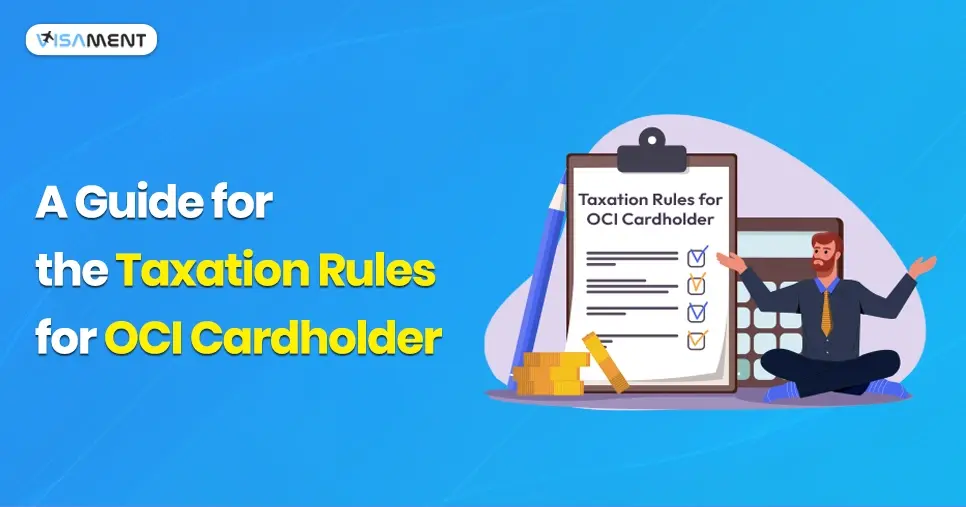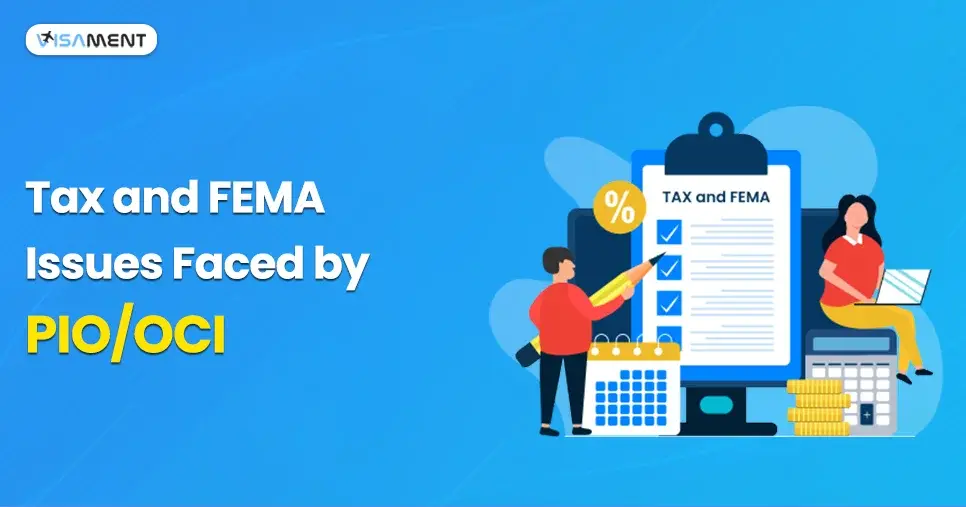- Key Takeaways
- Why are NRIs Moving Back to India from the USA?
- Banking Needs for NRIs Returning to India from the USA
- Managing Investments After Returning to India from the USA
- Tax Implications of an NRI Returning to India
- DTAA Between India and the USA
- Common Challenges NRIs Face While Moving Back from the USA
- Final Thoughts
The USA is one of the top destinations for Indians seeking better work opportunities, more career options, and greater global expansion.
However, in some previous years, we can see a decline in the number of NRIs in the USA, as most are returning to India for various reasons, such as family, financial, or other emotional reasons.
Moving back to India from the USA can be a complex process that includes tax complications, determining residency status, converting bank accounts, and more.
Through this blog, we will discuss all these things that help an NRI to easily return to India from the USA efficiently.
Key Takeaways
- NRIs return to India from the USA due to family ties, better employment, and financial opportunities.
- Your residential status determines your taxable income.
- Through the DTAA, you can avoid paying tax twice on the same income.
- If you stay for more than 182 days in a financial year, then you will be considered a resident of India.
Why are NRIs Moving Back to India from the USA?
As India is becoming a major developing country, offering better job opportunities, education, and healthcare facilities, many NRIs have decided to return from the USA.
Here are some of the major reasons given below why NRIs are returning to India:
- Family Gathering: One of the most common reasons NRIs return to India is to meet their loved ones and give their children a taste of Indian tradition and culture.
- Bigger Opportunities: India has a high demand for private-sector jobs, and the ecosystem here is attractive, enabling NRIs to return to India.
- Attractive Lifestyle: In India, most NRIs return because of the budget-friendly, beautiful lifestyle, which allows them to lower their living costs and other expenses.
- Education and Healthcare: India provides a high-class education to the NRI children and also provides an excellent healthcare system, which allows NRIs to move back to India.
Have questions? Our experts guide you through every step of the Tax Planning for Returning NRI – no confusion, no delays.
Consult an Expert TodayBanking Needs for NRIs Returning to India from the USA
NRIs living in the USA have different accounts in India, such as a Non-Resident Ordinary (NRO), Non-Resident External (NRE), and a Foreign Currency Non-Resident (FCNR) account.
If an NRI has moved back to India, then he or she needs to be re-designated both NRE/NRO accounts or close them and open a residential savings account according to the Reserve Bank of India (RBI) and Foreign Exchange Management Act (FEMA) Regulations by revisiting their bank held in India.
NRO Account: These accounts are re-designated to Indian resident accounts.
NRE Account: You cannot continue using your NRE account after you become a resident. NRI needs to convert these accounts to an Indian resident rupee account.
FCNR Account: You can use an FCNR account until maturity, and after maturity, you will need to open an Indian savings account and transfer all your funds, or you can use an RFC account.
International Bank Accounts: According to the Reserve Bank of India (RBI), an NRI can hold an international bank account opened in a foreign country. However, to continue using these accounts, you need to follow strict rules and regulations.
Managing Investments After Returning to India from the USA
When an NRI returns to India from the USA, they need to review all their foreign investments and assets, which are taxable in India.
NRIs need to manage their investments like Mutual funds, fixed deposits (FDs), or a demat account.
Demat Account: When you return to India, you need to convert your NRI demat account into a resident account, or close it and open an Indian resident demat account, by contacting your broker.
All the securities held in an NRE/NRO demat account will not be the same due to conversion rules, PIS permissions, and SEBI/RBI rules, as well as the completion of your KYC and PIS formalities with your depository.
Doing a new and smooth KYC and updating the Foreign Account Tax Compliance Act (FATCA) declaration in the USA.
Mutual Funds: You need to link your Indian resident savings account with an NRI bank account to get all the mutual funds stored in your NRI account that you have invested after getting the resident status in India. To get your mutual funds, you will also need to update your KYC and Foreign Account Tax Compliance Act (FATCA)/ CRS status.
Fixed Deposits (FD): If you have a fixed deposit in your NRE/NRO account, then you need to convert your FD account into an Indian FD account. Converting your FD account in India will not impact your taxation. You will be taxed and get interest at the same rate as before on the applicable tax rates.
Overseas Assets Investments: According to the Foreign Exchange Management Act (FEMA) regulations, you can continue to hold your foreign assets that you have invested when you are an NRI.
To continue holding these foreign assets, you need to report them on the ITR and comply with all applicable obligations and rules for the transfer. There are various types of foreign assets, such as property, securities, and bank deposits, that follow different procedures; always check the latest FEMA/RBI guidelines.
Tax Implications of an NRI Returning to India
Returning to India means a change in your residential status. You can be termed as "resident of India" or Non-resident Indians", which depends on how your income will be taxed upon your return.
Here are some of the eligibility conditions given below: if you meet them, you will be a resident of India; if you do not, you will be termed a non-resident of India.
- You are a resident of India if you stay in India for more than 182 days in the financial year.
- Or, stay in India for more than 60 days in the current financial year or 365 days in the last 4 years.
→If you are an Indian citizen or person of Indian origin, left India for employment purposes as a crew member on an Indian ship, then the above 60 days will be exchanged for 182 days in a financial year.
→If you are an Indian citizen or an Indian origin person whose total income is less than 15 lakhs INR apart from foreign income sources and visits India in a financial year, their above 60 days will be substituted by 182 days in a financial year.
→If you are an Indian citizen or a PIO holder with a total income of more than 15 lakh in India apart from all the foreign sources, then above 60 days will be exchanged for 120 days.
→According to section 6(1A), a deemed resident will not have to pay any tax in any other country to become a resident in India if their total income is more than 15 lakhs INR.
Now, after knowing your residency stays, you have to determine whether you are a Resident and Ordinarily Resident (ROR) or Resident but Not Ordinarily Resident (RNOR).
Here are a few conditions given below. If you meet those conditions, you will be considered an RNOR; if you fail to meet them, you will be considered a ROR.
1. First Condition
- You must be a non-resident for 9 out of 10 previous fiscal years.
- The total number of stays in India should be 729 or fewer days in the last 7 years.
- If you qualified as a "deemed resident".
Note: if you failed to meet the RNOR status, your income will be taxable worldwide
2. If you are an Indian Origin or an Indian Citizen and on a Visit to India in a Financial Year
- If you have an income source of more than 15 lakhs in a financial year.
- The duration of stay in India should be between 120 and 182 days.
To see the tax implications on the income, whether you are an RNOR or ROR, check the table given below:
| Particulars | Non-Resident | RNOR | ROR |
|---|---|---|---|
| Any income arising or deemed to arise in India | Taxable | Taxable | Taxable |
| Any income received or deemed to be received in India | Taxable | Taxable | Taxable |
| Any income arising outside India | Non-Taxable | Non-Taxable | Taxable |
DTAA Between India and the USA
India and the USA have signed a Double Taxation Avoidance Agreement (DTAA), which helps NRIs to avoid paying tax twice on the same income. Here are some of the benefits of DTAA between India and the USA:
- You can claim your tax credits in India in the Foreign Tax Credit (FTC) under Rule 128 in the USA.
- Certain types of income, like capital gains, royalties, and dividends, are taxed only in one country.
- To claim DTAA benefits, you need to collect certain documents, including W-2 forms, 1099s, tax returns, and the Indian ITR.
Common Challenges NRIs Face While Moving Back from the USA
Given below are some of the common challenges faced by the NRI returning to India from the USA:
- Understanding the taxation on global income can be a little tricky.
- If you haven't applied the DTAA properly, then you need to pay the tax twice.
- Incomplete documentation can lead to delays in banking and repatriation.
- Not easily understanding India's investment systems.
- Managing US property taxation and 401K, IRA.
Stop worrying about delays. Apply now and get Indian Counsellor Services.
Chat NowFinal Thoughts
Moving back to India from the USA can be difficult due to managing tax implications, documentation, and bank accounts. For this, you can take help from Visament, which has years of experience and experts who can help you convert your bank accounts, determine your residency status, and manage your investments.
For more information, you can contact the Visament agents on the website 24/7, who are there to help you and clear up any doubts or confusion. Make your NRI return journey from the USA to India more secure and simpler by choosing Visament NRI services, with comprehensive tax and financial planning.
Note: This guide is intended for general information purposes only. The views shared here are personal and do not represent the official positions of Visament. Neither Visament nor the author shall be held for any direct or indirect loss arising from decisions made based on this content.
Frequently Asked Questions
An NRI does not have to pay any tax on income earned outside India. However, an NRI who is converted to an Indian gets RNOR status, which is later converted to ROR status, and an Indian resident has to pay tax on global income under Indian income tax laws.
To file an income tax return for investments in US stocks from India, you need to file ITR-2 and ITR-3 and list all foreign assets in Schedule FA.
There is no fixed limit on sending money to India tax-free for NRIs. They can transfer any amount of money to India. However, gifts to non-relatives of amounts over 50,000 INR are taxable.
When you return to India, you need to convert your NRE account into a residential savings account or an RFC account in a few weeks.
To avoid double taxation in India and the USA, you need a well-planned structure, such as a flow-through or pass-through entity. I this, the profits bypass the corporate taxation and directly foes to the owners.
When you return to India, you need to convert your NRE account into an Indian resident savings account and the funds which is in your NRE account to the resident foreign currency RFC account.











